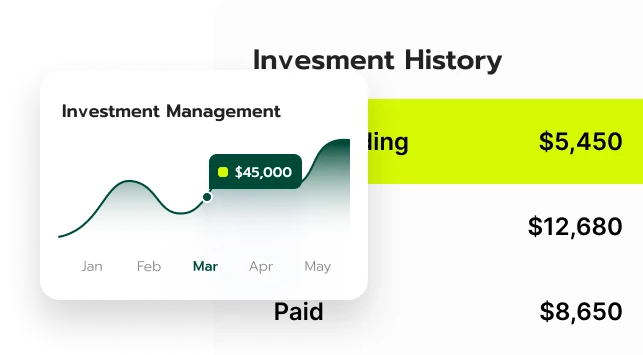Through technology, Trade Dexair i800 has achieved this goal as people only register to connect with investment education companies from different locations. Upon connection, investment teaching companies will equip people with knowledge in their investment/financial areas of interest.
Connecting with investment education websites is easy. People ready to begin their investment study should register for free on Trade Dexair i800 and connect with investment teaching firms by submitting their names, emails, and phone numbers. The firms will assign representatives to registrants to set up their accounts.

Unlike websites where prospective users experience debit or credit card troubles during registration, users have no such issue on Trade Dexair i800 as registration and connection is free. Register and connect with investment teachers for free by signing up on Trade Dexair i800.
Registration and connection on Trade Dexair i800 runs without complexities as the website operates smoothly 24/7. Trade Dexair i800 never has downtime, as the team ensures it is well maintained.
The website is checked consistently to meet the latest technological developments and user needs. Try out a glitch-free registration on Trade Dexair i800.
The connection process on Trade Dexair i800 is automated and fast. Investment education firms are already added to Trade Dexair i800, so searching for an investment education firm to connect with is not required.
As people register on Trade Dexair i800, they connect with investment education firms immediately. Connect swiftly with an investment education firm by registering on Trade Dexair i800.

Acquiring investment knowledge acquaints people with diverse investment topics, including investment types, risks, risk management, and instruments. Sign up on Trade Dexair i800 to acquire investment knowledge from suitable teachers.
Investment education may help people identify past financial decision-making errors and guide them to make knowledge-influenced and informed decisions about their finances moving forward. Start to make informed decisions by connecting with investment teaching firms on Trade Dexair i800.
By learning about investment, people get insights into how the investment world operates. Want to understand the investment industry operations? Register on Trade Dexair i800.
Instead, Trade Dexair i800 wants investment education companies to discuss all investment topics with learners for knowledge gathering, intellectual development, and educated decision-making. As people gain investment knowledge, they can develop problem-solving skills and understand the economy. Register on Trade Dexair i800 and connect with an investment education firm to get investment education.

An investment is an asset bought, held for a period, and sold to make possible gains. Returns are not 100% guaranteed because of risks that cause losses.
Assets like cash/cash equivalents, stocks, and bonds are bought and sold on different exchanges. Below, we discuss the various cash/cash equivalent types:
Commercial papers are unsecured and short-term debt instruments for raising funds, which mature within 270 days. Companies use commercial papers to finance short-term liabilities like inventories and payrolls. This short-term debt instrument offers low interest rates and is good for diversification but pays investors low returns and poses default risks.
Money market funds are mutual funds invested in cash/cash equivalents and short-term debt instruments. The debt-based financial instruments a money market fund invests in are certificates of deposit, bankers’ acceptances, and repurchase agreements. Money market funds are SIPC-insured (The Securities Investor Protection Corporation), liquid, and may offer returns but are affected by interest rate fluctuations and not FDIC-insured (Federal Deposit Insurance Corporation).
Certificates of Deposit
Certificates of deposit are savings accounts held in financial institutions for an inaccessible period, after which owners may be paid a fixed interest rate.
Treasury Bills
Treasury bills are issued by the U.S Department of the Treasury and bought by financial institutions, companies, and individuals.
Marketable Securities
Marketable securities are liquid instruments or assets easily convertible to cash within a year.
These securities are accessible, transparent, and allow diversification, although they are prone to market risk and accrue transaction costs that reduce returns. Some marketable securities are treasury bills, commercial papers, and derivatives such as stock rights and warrants, fixtures, and options. Need more information about marketable securities? Register on Trade Dexair i800.
The government issues short-term government bonds to fund projects. Though they are bonds, they are considered cash equivalents because they are actively traded and liquid. These bonds are taxed through their interest income and capital gains. Short-term government bonds have low interest rate risk and may guarantee stable income but are affected by inflation and interest rate risk. Learn more about this cash equivalent by registering on Trade Dexair i800.

Callable bonds can be repaid to investors before maturity. The bonds are flexible, help companies raise capital, and pay higher interest rates, but investors cannot gain from them when market rates rise and must replace them with lower-rate products. Convertible bonds allow investors to exchange a bond for shares in the issuing company. These bond types may have tax advantages, and debtors can pay low interest rates. Yet, they offer lower coupon rates because they are convertible to common stock.
Countries, states, and cities issue municipal bonds to finance public projects like roads, bridges, or libraries. These bonds may offer steady cash flow and tax exemptions but carry liquidity risks and influence rate fluctuations. Get detailed information about more bond types by signing up on Trade Dexair i800.
Stocks are company ownerships that may give investors access to the companies’ assets and earnings. Companies issue stocks to expand into new markets, pay off debts, and launch new products. Investors buy issued stocks for dividends, voting privileges, capital appreciation, and diversifying. Meanwhile, investors might get zero earnings if issuing companies go bankrupt.
Investors and companies exchange stocks through stock funds, dividend reinvestment plans, a full-service or discount broker, or a direct stock. Types of stocks are common, preferred, growth, penny, dividend, value, and ESG (Environmental. Social, and Governance). We briefly outline a few of them below:
Common stocks grant investors partial ownership of companies. These stocks give investors voting rights, allowing them to make corporate decisions. During liquidation, common stock investors may get returns only when others - bondholders, creditors, and preferred stockholders - are paid. Common stocks are inconvertible to other securities and more volatile because their earnings depend on market conditions and company performance.
Preferred stocks give investors company ownership without voting rights. These stocks may pay dividends regularly at a higher and fixed rate. Preferred stocks are less volatile and can be converted to common shares but have low liquidity.
Penny stocks are small companies’ stocks traded below $5 per share. These stocks may have high growth prospects and can fund small companies. Yet penny stocks lack liquidity, provide limited information to investors, and could be fraudulent.
Dividend stocks may pay dividends to shareholders consistently. Investors use dividend yield and dividend growth strategies to invest in these stocks. Investors also invest in dividend stocks through individual companies, dividend appreciation funds and ETFs (Exchange-traded Funds), and high-yield mutual funds and ETFs. Learn how dividend stocks work from investment teachers with Trade Dexair i800’s help.
An IRA CD is held in an individual retirement account. This CD type appeals mostly to people nearing retirement and have low risk tolerance. A step-up CD may automatically allow investors to get higher interest rates, while a foreign currency CD is issued in foreign currencies like Pounds or Euros and bought with U.S dollars. Once the CD matures, they are converted to U.S dollars.
Investment risks are majorly divided into systematic and unsystematic risks. While systematic risks are uncontrollable as they affect the market generally, unsystematic risks are controllable and specific to companies, sectors, or industries.
Systematic risks are market, political, exchange rate, inflation, and interest rate risks, while unsystematic risks are strategic, business, operational, and financial risks. Get a breakdown of these risks by signing up on Trade Dexair i800.
Dividends are equity/shares returns, while interests are debt investment/deposit returns. While dividends are not paid until declared at a dividend period close, interests may be paid daily according to the deposit contract. Lenders could be paid interest whether a company makes returns or not. On the other hand, dividends are paid when companies make gains.
Drafts are written orders from drawers to drawees, directing them (the drawees) to pay a specific amount to payees.
Repurchase agreements are short-term agreements to sell securities to other parties for repurchasing them in the future.
Companies use promissory notes to borrow funds without collateral for possible repayment at a future date.
Financial institutions issue letters of credit to guarantee a seller of a buyer’s payment in full and on time.
Asset-backed commercial papers are issued by non-bank financial institutions and backed by underlying assets.
Receivable-backed commercial papers are issued by companies and backed by accounts receivable.

| 🤖 Initial Cost | Registration is without cost |
| 💰 Fee Policy | Zero fees applied |
| 📋 How to Register | Quick, no-hassle signup |
| 📊 Educational Scope | Offerings include Cryptocurrency, Forex, and Funds management |
| 🌎 Countries Serviced | Operates globally except in the USA |


